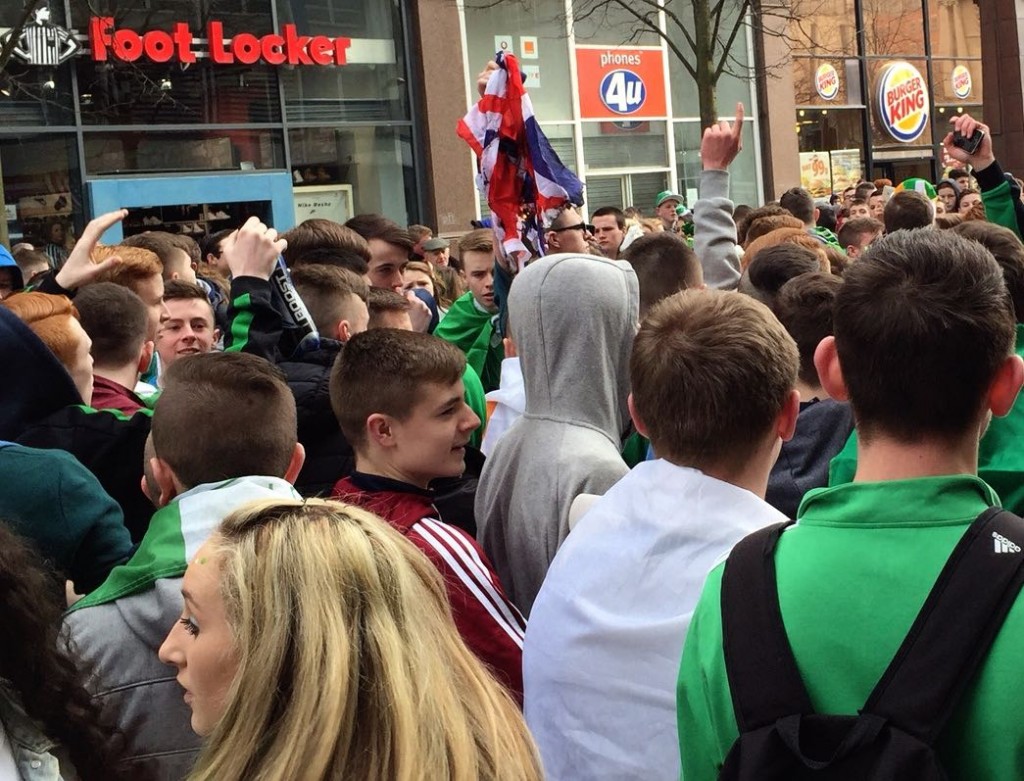
Once again, today was to be a day when I had intended to write about diversions. Believe me, I’d like to, but events, or in this case interviews, keep getting in the way.
I returned this morning to Belfast after spending the prior day down in Dublin doing the tourist thing with my daughter. (Stay tuned, I’ll write about that at some point.) In the afternoon I had another of those interviews with a refrain that has become all too familiar:
The peace here is far more fragile than it looks, and if you dare to scratch beneath the surface you’ll not like what you find. The lid may be on for now, but it won’t be for long unless present dynamics change.
The person I talked with has been involved with the Community Restorative Justice initiative in the Republican community since its inception in the 1970s. Several points he made stuck out to me, in large part because they confirm what others, both Nationalists/Republicans and Unionists/Loyalists, have said to me on this trip and prior ones.
- There is no peace process. There is only a politically expedient arrangement that creates a veneer of peace. In his words, if you lift the hood to examine the engine that drives the peace you’ll find that “the engine is fucked.”
- The underlying contradictions that led to the explosion of violence in the late 1960s remain unchanged. The present political configuration is not designed to change those dynamics. To the contrary, it is locking them in as the status quo.
- There is no viable political Republican alternative to Sinn Fein, and people are losing patience with it and with politics in general. Alienation from the political process is increasingly the norm. Under these conditions Republican “splinters” and “micro-groups” appear increasingly attractive.
- The future of the peace is in the hands of people too young to remember the bad times. These young people are the most alienated from normal politics, and they are ripe for recruitment into paramilitary organizations on both sides of the sectarian divide. Those organizations recognize this and are taking advantage.
- Sectarianism is deeply entrenched and in some ways has become worse, especially on the Nationalist side which always maintained that its struggle was about politics, not tribal identity.
- When it becomes obvious that the political process here has failed, and that failure is becoming increasingly visible, then people will return to the traditional way in which political conflict gets resolved here. Violence.
In short, according to my contact today, all of the institutions of the peace in Northern Ireland, which are celebrated by politicians and academics alike, are built on a foundation of sand. And that sand is steadily, but inexorably, washing away.